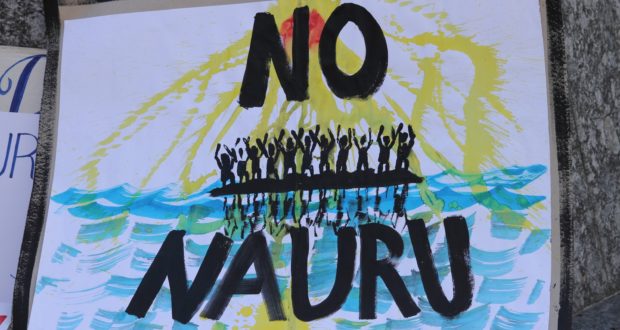Coming up
Musgrave Park Family Fun Day
This is one of the biggest cultural celebration of its kind in Australia, taking place during NAIDOC Week on Friday 12 July from 9am–5pm at Musgrave Park, Cordelia Street, South Brisbane.
This day delivers family friendly entertainment and activities to showcase aspects of Indigenous Australian culture and heritage across various mediums of performing arts, traditional foods, arts and crafts to contemporary aspects promoted by Indigenous entrepreneurs.
This event is the largest of its kind in Australia and brings together communities from across Brisbane, the broader state and New South Wales.
Week in review
“Climate apartheid”: UN expert
The world is increasingly at risk of “climate apartheid”, where the rich pay to escape heat and hunger caused by the escalating climate crisis while the rest of the world suffers, a report from a UN human rights expert has said.
Philip Alston, UN special rapporteur on extreme poverty and human rights, said the impacts of global heating are likely to undermine not only basic rights to life, water, food, and housing for hundreds of millions of people, but also democracy and the rule of law: “Climate change threatens to undo the last 50 years of progress in development, global health, and poverty reduction.” Read more here.
No faith in coal
An open letter to the Prime Minister, signed by 150 faith leaders around Australia including Dr Deirdre Palmer, President of the Uniting Church in Australia, calls on the government to make addressing the problem of climate change the number one priority.
“Opening up new coal reserves for mining is not compatible with any global response to avoid catastrophe … we understand this will be challenging. To start with, the people who live in those communities where employment would be affected clearly need good reliable jobs. Yet a courageous leader would come up with a jobs plan based on renewable energy instead of coal, an industry with an uncertain future which is now threatening our very survival.”
Communities helping refugees settle
This ABC article explores the experiences of refugees arriving to settle in the Victorian town of Bendigo. What factors make regional settlement successful? Established migrant communities such as the Karen and Afghani communities in Bendigo can act as “anchors” for new arrivals, providing experience, advice and familiarity with local settlement processes and opportunities. Here’s how life has changed for that community.
Secrecy over $423 million contract
Australia’s contract with a little-known security provider has become a story of corporate and administrative intrigue highlighting the utter unsustainability of our current approach to people seeking our protection. The contract was to provide housing and security for refugees on Manus Island for 22 months at $20.9 million per month. To keep refugees on Nauru and Manus Island it costs Australian taxpayers 56 times more that it would to have them live among us.
The Kaldor Centre Principles on Australian Refugee Policy provides concrete examples of how Australia can create a manageable refugee system—one that benefits refugees and the Australian community.
Turning to music to help
One small remote community in Western Australia is using music with the local kids, to address mental health issues, in the face of an increasing number of Indigenous suicides across Australia. This is a six-minute video from ABC News. A warning to Indigenous people that this story includes the name and image of someone who has died.
Choosing by not choosing
“After 12 years of public debate and consideration, last month’s election result inevitably means a delay in substantive reform for Australia’s First Nations. The implications affect not just Indigenous Australians but the nation as a whole.” This article cautions, we should all be aware of the great cost of inaction.
Indigenous stories programmed for NAIDOC Week
SBS and NITV will broadcast a rich program suite of unique Indigenous stories starting from Friday 5 July.
“Voice, Treaty, Truth, will be this year’s celebratory mantra with the notion that, in order for Indigenous and non-Indigenous Australia to walk together, the following steps must be taken:
Indigenous knowledges and experiences need to be heard through their own Voices; First Nations people should have a seat at the bargaining table in discussions of Constitutional reform and Treaties; And a Truthful depiction of colonisation needs to underpin the narrative of Australian history.” Check out what is on offer.
Forcibly displaced people at a record high
The world now has a population of 70.8 million forcibly displaced people. During 2018 13.6 million people were newly displaced, which means that on every day of 2018, 37,000 people were newly displaced. Finding it difficult to even imagine? Try this: Every minute in 2018, 25 people were forced to flee. This is devastation on a scale never known until now.
The UNHCR’s Global Trends report from 2018 has been released and provides a detailed breakdown of the figures.
Call to action
Watch: history of the Torres Strait Islands
Blue Water Empire is currently showing on Tuesdays on ABC TV and is also available to watch on ABC iview. It is a three-part dramatized documentary series giving a unique insight into the compelling history of the Torres Strait Islands, told through key stories by the men and women of the region.
This series will help build a better cultural understanding of local communities for us all. The Coming of the Light is a holiday celebrated with religious and cultural ceremonies by Torres Strait Islanders on 1 July every year. It recognises the arrival of the London Missionary Society and Christianity during the late 19th century.
 JourneyOnline
JourneyOnline







